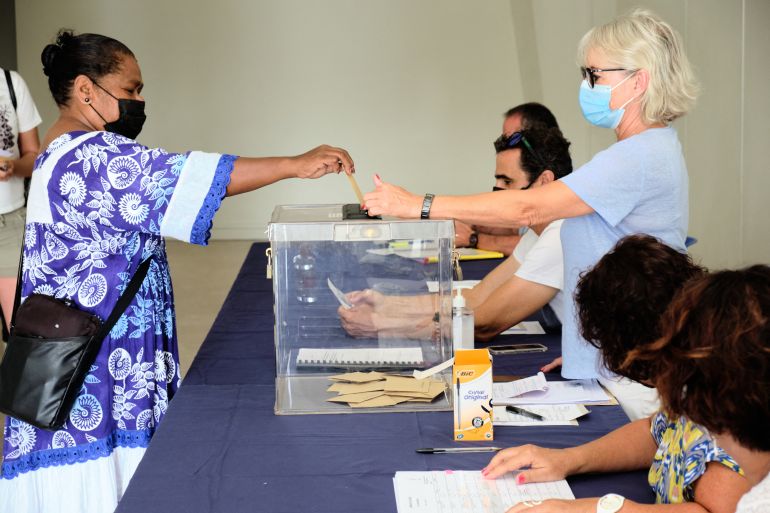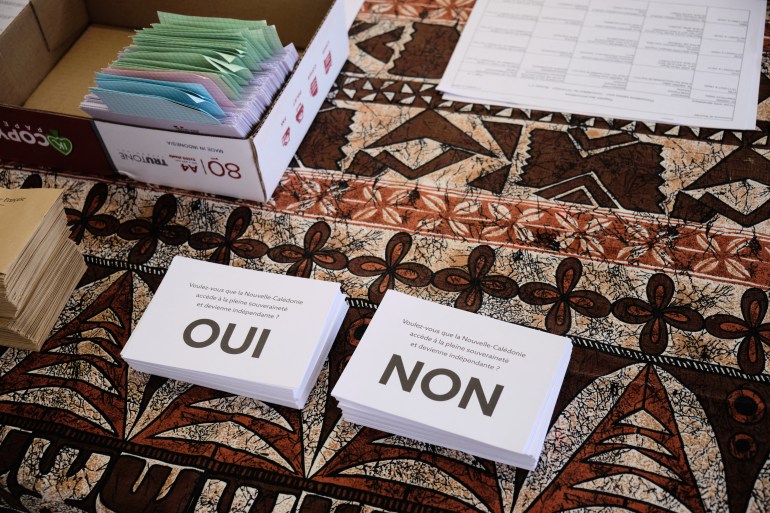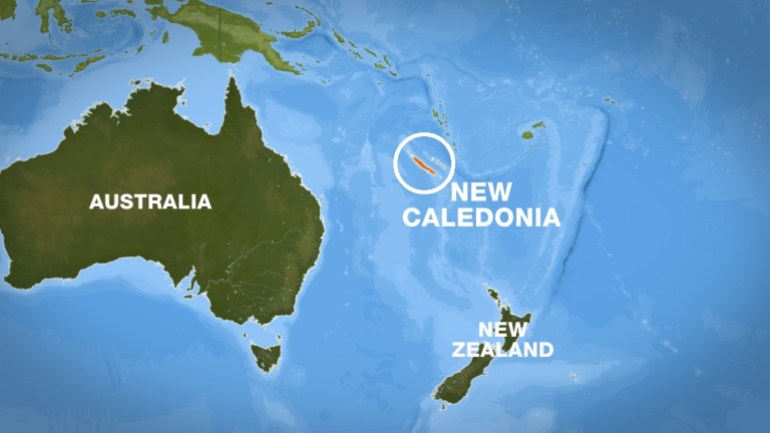New Caledonia holds tense final vote on independence from France
Main independence parties have called for a boycott due to high numbers of COVID-19 cases.

The French Pacific territory of New Caledonia has voted in a third and final referendum on independence from France.
But the poll on Sunday was marred by a boycott from the main independence parties who say the coronavirus pandemic prevented a fair ballot.
Keep reading
list of 4 itemsNew Caledonia to hold third independence referendum
New Caledonia rejects independence, will stay part of France
Macron hails New Caledonia vote to ‘remain French’
Turnout was sharply down on the two previous polls, with just 41.60 percent voting by 5pm (06:00 GMT), compared with 79.63 percent at that stage in last year’s vote, according to the islands’ high commission.
Results were expected later on Sunday.
At the Candide-Koch polling station, one voter told the AFP news agency that “this referendum does not make too much sense because half the population has decided not to vote”.
Cathy, who gave only her first name, told AFP she came “out of civic-mindedness”.
“What interests me is the society we are going to build afterwards,” she added.
The territory of about 185,000 voters, 2,000 kilometres (1,250 miles) east of Australia, was granted three independence referendums under a 1988 deal aimed at easing tensions on the islands.
Having rejected a breakaway from France in 2018 and then again last year, the inhabitants are being asked one last time: “Do you want New Caledonia to accede to full sovereignty and become independent?”

At stake is one of France’s biggest overseas territories, with about 10 percent of the world’s nickel – used to make stainless steel, batteries and mobile phones – and a key strategic asset in the contest between the West and China for power in the Indo-Pacific.
Experts suspect that an independent New Caledonia could be more amenable to Beijing’s advances and that behind a recent spat between France and Australia over submarine contracts looms China’s growing role in the region.
“If the French safeguard disappears, all elements would be in place for China to establish itself permanently in New Caledonia,” said international relations analyst Bastien Vandendyck.
Other nations in the region, including Fiji, Vanuatu, the Solomon Islands and Papua New Guinea, had already become “Chinese satellites”, Vandendyck told AFP.
“All China needs now to complete its pearl necklace on Australia’s doorstep is New Caledonia,” he said.
‘A mess’
Pro-independence campaigners boycotted the vote, saying they wanted it postponed to September because “a fair campaign” is not possible with high coronavirus infection numbers.
“I don’t want to go and vote because I don’t agree with this final poll,” said Noumea resident Jean-Pierre Wadra.
New Caledonia’s 270,000 inhabitants were largely spared during the pandemic’s first phase, but have suffered close to 300 COVID-19 deaths since the Delta variant appeared.
The pro-independence movement has still threatened non-recognition of the referendum outcome and promised to appeal to the United Nations to get it cancelled.

Authorities deployed 2,000 police and troops for the vote, which had passed off without incident so far, according to the high commission, although police intervened over an attempted roadblock on an outlying island.
Whichever way the poll goes, the controversy is likely to rumble on: “It’s going to be a mess in New Caledonia,” Wadra said.
The French minister in charge of overseas territories, Sebastien Lecornu, said the boycott would make no difference to the referendum’s “legal validity”.
The vote comes against the backdrop of increasingly strained ties between Paris and its regional allies. France regards itself as a major Indo-Pacific player thanks to overseas territories such as New Caledonia.
President Emmanuel Macron has insisted the French state takes no side in the referendum, other than to ensure fair and smooth proceedings.